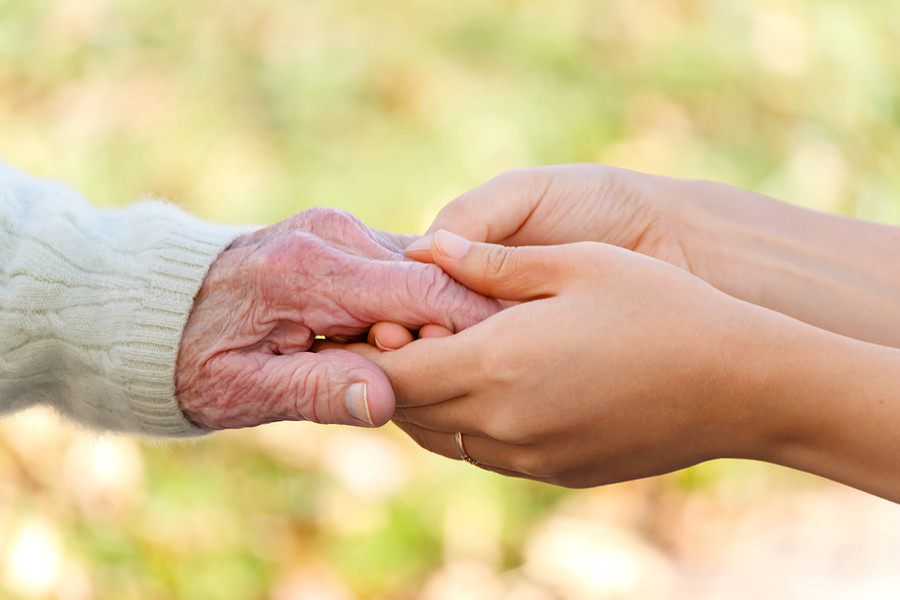
Trying to lose weight? Be careful not to lose muscle

Is your skin problem actually an autoimmune condition?

People with diabetes face higher risk of hearing loss

Antibiotic-free fixes for recurrent UTIs

Musculoskeletal syndrome of menopause: When menopause makes you ache all over

When can older women stop getting mammograms?

To lose weight, especially harmful belly fat, combine diet and exercise

Can men hold off on treating recurring prostate cancer?

The 7 types of rest and why we need them all

What are the early warning signs of cervical cancer?
Mental Health Archive
Articles
Can hospice care reduce depression in the bereaved?
Hospice care improves quality of life in the dire circumstances of a person’s last days. It can enable the dying to spend this time in peace, surrounded by family and friends, and in little pain. Studies confirm what many know intuitively. Family members are likely to experience major depression following the loss of a loved one. A recent study published in today’s online JAMA Internal Medicine looked at whether hospice care reduces the severity of bereavement-related depression in people who had recently lost a spouse. While the researchers saw no difference between spouses whose partners were enrolled in hospice and those how weren’t, major depression was less common in spouses who received support from a hospice program.
Pay attention to signs of depression
Over time, most people with dementia or mild cognitive impairment (a decline in thinking skills) also experience behavioral changes, such as depression and agitation. Which comes first? A study published online by Neurology on Jan. 14, 2015, suggests that psychological and behavioral changes can begin before people develop mild cognitive impairment or dementia. Researchers evaluated the daily functioning, memory and thinking skills, and psychological and behavioral symptoms of about 2,400 people, ages 50 and older, who had no evidence of cognitive decline. The study also suggests that a pattern of depressive symptoms may occur in older adults, unrelated to cognitive decline. The takeaway? "Depressive symptoms can occur in older adults for many reasons. If you are experiencing mood or cognitive changes that last for more than a few weeks, it's a good idea to bring this up with your doctor or consult a mental health specialist to help sort out possible causes," says Dr. Nancy Donovan, an instructor in psychiatry at Harvard Medical School.
Two ways to stay mentally sharp
Regular physical activity helps keep your heart, lungs, and muscles in shape and can stave off the effects of aging. In much the same way, exercising your brain can help keep your mind sharp and your memory intact. Here are two ways to activate your brain.
Keep busy and engaged
The MacArthur Foundation Study on Successful Aging, a long-term study of aging in America, found that education level was the strongest predictor of mental capacity as people aged. The more education, the more likely an individual was to maintain his or her memory and thinking skills. Other research has shown that people who held jobs that involved complex work, such as speaking to, instructing, or negotiating with others, had a lower risk of memory loss (dementia) than people whose jobs were less intellectually demanding.
Pets can help their humans create friendships, find social support
Pets can provide their owners with more than companionship. A new study, published online in the journal PLoS One, shows that pets can also help create human-to-human friendships and social support, both of which are good for long-term health. The effect isn’t limited to dogs. Other kinds of pets, including cats, rabbits, and snakes, can also be catalysts for making friends and finding social support. In a survey of residents of four cities, being a pet owner was the third most common way that respondents said they met people in their neighborhoods. Pet owners were 60% more likely than non–pet owners to get to know people in their neighborhoods they hadn’t known before. They were also more likely to have reported befriending someone they met through a pet-related connection or getting social support from them. As described in Get Healthy, Get a Dog, a Special Health Report from Harvard Medical School, pet ownership has many direct physical and mental health benefits.
Good balance requires mental and physical fitness
Balance can't be taken for granted past a certain age; it must be maintained — both in mind and body.
General physical fitness and targeted exercises to improve balance can prevent falls. But so can staying mentally active to maintain brain health. A sharp mind helps you to think — and stay — on your feet.
Germanwings Flight 9525 shows the limits of predicting human violence
The tragic story of copilot Andreas Lubitz, the man who apparently crashed Germanwings flight 9525 into the Alps in an act of suicide and murder, demonstrates the opaqueness of mental illness. It is difficult to know when a person is struggling with private psychological and emotional pain that might lead to dangerous or destructive behavior. All of us tend to keep our thoughts, especially our most disturbing ones, to ourselves. Even when encouraged to speak those thoughts aloud — to a mental health professional, for example — it is very difficult to do so. This tragedy will likely spark calls for increased scrutiny of pilots. That’s not necessarily a bad thing, but it could lead to the unintended and undesirable consequence that pilots will become even more wary of seeking help. To honor the lives lost will require policies that protect the public while not being punitive to pilots.
Editorial calls for more research on link between football and brain damage
Is brain damage an inevitable consequence of American football, an avoidable risk of it, or neither? An editorial published yesterday in the medical journal BMJ poses those provocative questions. Chad Asplund, director of sports medicine at Georgia Regents University, and Thomas Best, professor and chair of sports medicine at Ohio State University, offer an overview of the unresolved connection between playing football and chronic traumatic encephalopathy, a type of gradually worsening brain damage caused by repeated mild brain injuries or concussions. The big question is whether playing football causes chronic traumatic encephalopathy or whether some people who play football already at higher risk for developing it. The Football Players Health Study at Harvard University hopes to provide a solid answer to that and other health issues that affect professional football players.

Trying to lose weight? Be careful not to lose muscle

Is your skin problem actually an autoimmune condition?

People with diabetes face higher risk of hearing loss

Antibiotic-free fixes for recurrent UTIs

Musculoskeletal syndrome of menopause: When menopause makes you ache all over

When can older women stop getting mammograms?

To lose weight, especially harmful belly fat, combine diet and exercise

Can men hold off on treating recurring prostate cancer?

The 7 types of rest and why we need them all

What are the early warning signs of cervical cancer?
Free Healthbeat Signup
Get the latest in health news delivered to your inbox!
Sign Up







